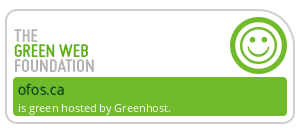Journalism
By Erica Butler, journalist with the Halifax Examiner. Presented at the first OFOS workshop in October, 2019.
Good journalism informs, clarifies, and empowers.
I think of journalism as a public service: It’s all about your reader. The average person is not able to sift through the vast amounts of information that is out there on every topic. And yet these people have to make decisions—all day, every day—that shape the world. Journalists help inform people. They help to clarify the information that is out there, and they empower people to make good decisions.
Some types of journalism.
- News/reporting: This covers the basic 5 questions: who, what, where, when, why. The focus is on informing readers about what is happening in their community, country, or world.
- Deep dive/feature: This type of journalism looks deeper into why things happen, or looks at patterns in what is happening. These articles are longer and require more intensive research.
- Column/opinion: Columns are more personal and aim to make a point, but remember you still have a responsibility to inform and clarify. If you are leaving out facts in order to help make your point, then you’ve crossed a line and are no longer writing journalism.
- Profiles/reviews: This is similar to feature writing, but your focus in on a particular person, usually someone whose public persona you think is important in your community, country, or world. You are letting your reader get to know this person through you. Reviews are related, in that you are letting your reader get to know a book, film, piece of music, or other art-form.
- Investigative: In one sense, all reporting involves some amount of investigation but by “investigative journalism” we mean the work of finding out about and explaining things that are not being shared freely in the media. Although investigative journalism is often represented as a highly exciting form of writing, the reality is that the process can be quite painstaking, at least at the outset. It can involve looking through reams of documents or data, for example, looking for patterns or answers that are hidden in plain sight.
General tips for researching, writing, and reporting.
- Be clear about your central question. Put it into words. What is your story really about? What question are you trying to answer and inform people about? Once this is clear, ask: Why am I curious about this question? Why am I asking it? Are there related questions that might help me find answers?
- Don’t assume you know everything but act like you are entitled to know everything. I got this piece of advice from freelance journalist Lezlie Lowe. She says journalists should not assume we know the details of any situation—because no one wants to read a story about our assumptions. Asking simple questions can help clear up all kinds of myths and misunderstandings, especially our own. But journalists should also feel entitled to ask and get information. Ask your questions with confidence, knowing that you (almost always, within reason) have a right to know. And the public has a right to know, too. You are a stand-in for the public, your reader.
- Cover the bases and the basics. Before you wrap up your research, make sure you have covered the 5 Ws: Who, what, where, when, why. This is especially important if you are writing about a topic you know well. You might accidentally leave out important information because it is so familiar or obvious to you.
- Ask: How would I tell this story to a friend? Asking this question can help you discover the most interesting way to tell the story. You wouldn’t want to bore your friend!
Tips for reporting on climate change.
These are taken from a course offered by the Poynter Institute.
- Science and policy are different things. If you’re writing about science, you are discussing what we know or don’t know about climate change. If you’re writing about policy, you’re writing about what governments (and other organizations) should or should not do about climate change.
- There are many debates. The climate crisis does not revolve around a single debate. There are many debates about policy, economics, how science is interpreted and used in policy etc. Be clear about which debate you are discussing.
- While there are still many political controversies, the central scientific facts about climate change are no longer up for debate. The planet is warming due to human activities. This is no longer a question for a journalist article.



